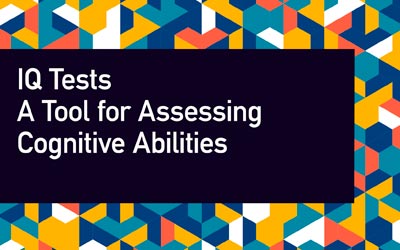The inner monologue, also known as internal speech or inner voice, is an essential aspect of human cognition and consciousness. It involves the silent production of words or images in our minds, and it plays a crucial role in various psychological processes such as planning, remembering, self-motivation, reading, and writing. The link between inner monologue and intelligence has been a topic of interest and research in recent years. Some studies suggest that individuals with a developed inner monologue and higher verbal skills may have a higher IQ. However, the correlation between inner monologue and intelligence is not straightforward, as some people rely more on visual thinking rather than verbal thinking. In this blog, we will explore the connection between inner monologue and IQ, the psychological mechanisms behind inner monologue, the science of IQ, and the intersection of inner monologue and IQ. We will also debunk some common misconceptions and explore techniques to enhance inner monologue for cognitive improvement.
Key Highlights
- There is a link between a person's inner monologue and their intelligence
- Inner speech is connected to various psychological processes such as planning, remembering, and self-motivation
- Inner monologue does not necessarily indicate higher intelligence, as some individuals rely more on visual thinking
- Studies have shown that some people spend at least 50% of their lives talking to themselves, while others have no inner voice at all
- The correlation between inner monologue and intelligence is still being researched and understood
- Techniques such as mindfulness meditation can enhance inner monologue and cognitive abilities
Understanding Inner Monologue
Inner monologue, also referred to as internal speech or inner voice, is the voice we hear in our heads even when we are not speaking. It is a result of specific brain processes that allow us to listen to our own voice internally. Inner monologue is a common experience for many individuals, and it plays a significant role in shaping our perceptions, attitudes, and behavior. It is connected to various psychological processes, including planning, remembering, self-motivation, reading, and writing. Some people spend at least 50% of their lives talking to themselves through their inner monologue, also known as their small voice, while others may have no inner voice at all.
Defining Inner Monologue and Its Universality
Inner monologue, also known as internal speech or inner voice, refers to the ongoing stream of thoughts, feelings, and inner conversations that occur within a person's mind. It is the voice we hear in our heads, even when we are not speaking. Inner monologue is a universal phenomenon, and it is a fundamental aspect of human cognition and consciousness. It is connected to many psychological processes, including planning, remembering, self-motivation, reading, and writing. Some individuals rely heavily on their inner monologue as a way of processing information and organizing their thoughts, while others may rely more on visual thinking or non-verbal forms of internal dialogue. The presence or absence of an inner monologue does not necessarily indicate higher or lower intelligence, as intelligence is a complex construct that encompasses various cognitive abilities. However, it is worth noting that inner monologue can take on different forms, such as a word, a phrase, or a monologue of some sort, making it a versatile and universal thinking process.
The Psychological Mechanisms Behind Inner Monolog
The inner monologue is a result of specific brain processes that allow us to listen to our own voice internally. It is connected to many psychological mechanisms and processes. One such mechanism is cognitive processes, which involve the mental processes of acquiring, processing, storing, and using information. Inner monologue is closely linked to these cognitive processes, as it helps in planning, remembering, self-motivation, reading, and writing. It serves as a tool for organizing thoughts, making decisions, and problem-solving. Another psychological mechanism behind inner monologue is working memory, which refers to the cognitive system responsible for temporarily holding and manipulating information. Inner monologue utilizes working memory to process and manipulate verbal and visual information internally. These psychological mechanisms contribute to the richness and functionality of the inner monologue and its connection to intelligence. Additionally, the inner monologue also plays a role in how our auditory systems process speech. When we speak, a duplicate of our voice is produced internally at the same time as our speaking voice. This signal is crucial for internal speech and can also affect how we process external speech. Our constant inner monologue may also overwhelm our auditory system, making it difficult to hear other sounds.
The Science of IQ
Intelligence quotient (IQ) is a measure of a person's cognitive abilities, particularly their capacity for reasoning, problem-solving, and learning. It is a way to assess how well an individual can apply knowledge and reason to provide answers or make predictions. IQ tests typically evaluate short-term and long-term memory, as well as the ability to recall knowledge and solve problems accurately and quickly. Intelligence encompasses various mental abilities, including information retrieval and archiving, abstract thought, reasoning, complex thought processes, and planning. IQ levels can vary among individuals, and there are factors that influence IQ, such as individual differences and cognitive development.
An Overview of Intelligence Quotient (IQ)
Intelligence quotient (IQ) is a measure used to assess a person's cognitive function and potential. It provides an indication of a person's ability to reason, solve problems, and learn. IQ levels are typically categorized into different ranges, such as below average, average, above average, and gifted. The average IQ score is around 100, with scores below 70 indicating intellectual disability and scores above 130 indicating giftedness. IQ scores are obtained through standardized tests that assess various cognitive abilities, including memory, problem-solving, and abstract reasoning. It is important to note that IQ scores are not an absolute measure of intelligence, as intelligence encompasses many different aspects and abilities. Factors such as individual differences, cognitive development, and environmental factors can influence a person's IQ level.
Factors Influencing IQ Levels
IQ levels can be influenced by various factors, including both genetic and environmental factors. Individual differences play a significant role in determining IQ levels, as different individuals have different cognitive abilities and strengths. Genetic factors contribute to a certain extent to a person's IQ, as intelligence can be hereditary to some degree. However, environmental factors also play a crucial role in shaping IQ levels. Factors such as access to quality education, nutrition, stimulation in early childhood, and socio-economic status can impact a person's cognitive development and ultimately their IQ level. It is important to note that IQ is not a fixed trait and can change over time. With appropriate interventions and opportunities for growth and development, individuals can enhance their cognitive abilities and potentially improve their IQ levels.
The Intersection of Inner Monologue and IQ
The intersection of inner monologue and IQ lies in the cognitive abilities and processes involved in both. Inner monologue utilizes cognitive processes such as working memory, attention, and language processing to process and manipulate verbal and visual information internally. These cognitive abilities are also closely linked to IQ, as IQ tests assess a person's capacity for reasoning, problem-solving, and learning. The effectiveness and richness of one's inner monologue can impact their cognitive abilities and potentially their IQ level. Understanding the connection between inner monologue and IQ can shed light on the role of internal dialogue in cognitive processes and intelligence, including the development of verbal mediation.
How Inner Monologue Influences Cognitive Processes
Inner monologue plays a crucial role in cognitive processes such as planning, remembering, self-motivation, reading, and writing. It serves as a tool for organizing thoughts, making decisions, and problem-solving. Inner speech allows individuals to engage in self-directed and self-regulatory processes, guiding their actions and behaviors. By talking to ourselves internally, we can rehearse and practice difficult conversations, plan our actions, and reflect on our experiences. Inner monologue also helps in reading comprehension, as it allows individuals to process and understand written information. It is connected to working memory, which is responsible for temporarily holding and manipulating information. By utilizing inner monologue, individuals can enhance their cognitive processes and improve their ability to navigate complex tasks and challenges.
Studies Linking Inner Monologue to Intelligence Levels
Several studies have explored the link between inner monologue and intelligence levels. One study conducted by Russell Hurlburt, a psychology professor, used a method called descriptive experience sampling to understand the inner experiences of individuals. The study found that some individuals spend at least 50% of their lives talking to themselves through their inner monologue. However, the presence or absence of an inner monologue does not necessarily indicate higher or lower intelligence. Another study conducted by Mark Scott at the University of British Columbia investigated the role of corollary discharge, a brain signal, in internal speech. The study found that corollary discharge plays a crucial role in distinguishing internal sensory information from external stimuli and is related to the processing of speech. These studies, led by psychology professor Russell Hurlburt, contribute to our understanding of the connection between inner monologue and intelligence, emphasizing the complex nature of intelligence and the different cognitive processes involved.
Inner Monologue in High vs. Low IQ Individuals
The characteristics of inner monologue can vary among individuals with high and low IQ levels. High IQ individuals may exhibit characteristics of a richer and more elaborate inner monologue. They may engage in positive affirmations, use private speech as a tool for problem-solving, and have a more active and structured stream of thoughts. On the other hand, low IQ individuals may exhibit differences in their inner monologue. They may rely more on external speech or have difficulties in mental health that impact their inner dialogue. Further research is needed to fully understand the differences in inner monologue among individuals with different IQ levels and the implications for cognitive processes and intelligence.
Characteristics of Inner Monologue in High IQ Individuals
High IQ individuals may exhibit certain characteristics in their inner monologue. They may engage in positive affirmations, using self-directed and motivational self-talk to enhance their cognitive abilities and problem-solving skills. High IQ individuals may also utilize private speech, talking to themselves internally as a tool for organizing their thoughts and guiding their actions. Their stream of thoughts may be more active and structured, allowing them to navigate complex tasks and challenges effectively. These characteristics of inner monologue contribute to their cognitive processes and potentially their higher IQ levels. Understanding the characteristics of inner monologue in high IQ individuals can provide insights into the cognitive strengths and abilities associated with intelligence.
Differences in Inner Monologue Among Low IQ Individuals
Low IQ individuals may exhibit differences in their inner monologue compared to high IQ individuals. They may rely more on external speech as a means of communication and problem-solving. The absence of an internal dialogue or limited use of inner monologue does not necessarily indicate lower intelligence but may be influenced by various factors such as cognitive function and individual differences. Low IQ individuals may also experience difficulties in mental health, which can impact their inner dialogue. These differences in inner monologue among low IQ individuals highlight the importance of considering individual differences and cognitive factors when examining the connection between inner monologue and intelligence.
Enhancing IQ Through Inner Monologue
Inner monologue can potentially enhance cognitive abilities and contribute to the development of higher IQ levels. Techniques such as mindfulness practices and cognitive enhancement strategies can improve the effectiveness and richness of one's inner monologue. Mindfulness meditation, for instance, can help individuals cultivate a focused and non-judgmental awareness of their inner thoughts and experiences. This can enhance cognitive function, including attention, working memory, and cognitive flexibility. By practicing mindfulness meditation, individuals can strengthen their inner monologue and improve their cognitive abilities, potentially leading to a significant difference in their IQ levels. Other techniques, such as verbal thinking and self-directed self-talk, can also contribute to the development of a richer and more effective inner monologue.
Techniques to Develop a Richer Inner Monologue
Developing a richer inner monologue can contribute to the enhancement of cognitive function and potentially improve IQ levels. Here are some techniques to develop a richer inner monologue:
| Practice mindfulness meditation: | Cultivate a focused and non-judgmental awareness of your inner thoughts and experiences. |
| Engage in verbal thinking: | Talk to yourself internally, rehearse conversations, and verbalize your thoughts. |
| Use positive affirmations: | Incorporate positive self-talk to enhance motivation and problem-solving abilities. |
| Practice self-reflection: | Reflect on your experiences, thoughts, and emotions to enhance self-awareness and critical thinking. |
| Seek cognitive enhancement strategies: | Engage in activities or exercises that challenge your cognitive abilities and promote cognitive growth. |
The Role of Meditation and Mindfulness in Enhancing IQ
Meditation and mindfulness practices have been shown to have a positive impact on cognitive function and potentially enhance IQ levels. Mindfulness meditation, in particular, can enhance attention, working memory, cognitive flexibility, and problem-solving abilities. By cultivating a focused and non-judgmental awareness of one's thoughts and experiences, individuals can strengthen their inner monologue and improve their cognitive abilities. Mindfulness practices also promote stress reduction and emotional well-being, which can further enhance cognitive functioning. Engaging in regular meditation and mindfulness practices can provide individuals with the tools to develop a richer inner monologue and potentially enhance their IQ levels.
Debunking Myths About Inner Monologue and IQ
There are common misconceptions and misunderstandings surrounding the connection between inner monologue and IQ. It is important to debunk these myths to gain a better understanding of the relationship between inner monologue and intelligence. Debunking these myths can also help individuals recognize the individual differences and complexities involved in the connection between inner monologue and IQ. By challenging these misconceptions, we can foster a more accurate and nuanced understanding of the role of inner monologue in cognitive processes and intelligence.
Clarifying Misconceptions and Common Misunderstandings
There are several common misconceptions and misunderstandings when it comes to the connection between inner monologue and IQ. It is important to clarify these misconceptions to gain a more accurate understanding of the relationship between inner monologue and intelligence. Some common misconceptions include:
- Inner monologue does not necessarily indicate higher intelligence, as some individuals rely more on visual thinking or non-verbal forms of internal dialogue.
- The absence of an inner monologue does not indicate lower intelligence, as intelligence is a complex construct that encompasses various cognitive abilities.
- Inner monologue is not the sole determinant of intelligence, as intelligence is influenced by various genetic and environmental factors.
- Cognitive development and individual differences play a significant role in the presence or absence of an inner monologue and IQ levels.
The Danger of Overgeneralizing the Link Between Inner Monologue and IQ
Overgeneralizing the link between inner monologue and IQ can lead to misunderstandings and misinterpretations. It is important to recognize that the relationship between inner monologue and intelligence is complex and multifaceted. Inner monologue is just one aspect of cognitive function and does not solely determine intelligence levels. Intelligence is influenced by various genetic and environmental factors, and individual differences play a significant role in cognitive abilities. By avoiding overgeneralizations and considering the nuances and complexities of the connection between inner monologue and IQ, we can foster a more accurate understanding of the role of internal dialogue in cognitive processes and intelligence.
Conclusion
In conclusion, the link between inner monologue and IQ unveils intriguing insights into cognitive processes. Understanding the psychological mechanisms behind inner monologue and its impact on intelligence levels sheds light on enhancing cognitive abilities. Studies highlighting the characteristics of inner monologue in high vs. low IQ individuals provide valuable perspectives. Techniques like meditation and mindfulness play a key role in nurturing a richer inner monologue for cognitive improvement. Debunking myths and misconceptions surrounding this link emphasizes the need for a nuanced understanding. Exploring FAQs further enriches our comprehension of this fascinating connection between inner monologue and IQ levels.
Frequently Asked Questions
Can someone develop an inner monologue if they don't naturally have one?
Yes, it is possible for someone to develop an inner monologue even if they don't naturally have one. Inner monologue can develop through cognitive development and the enhancement of mental processes. It can be fostered through techniques such as mindfulness practices and verbal thinking. However, individual differences and cognitive abilities may influence the development of an inner monologue.
Is there a direct correlation between the complexity of inner monologue and IQ level?
There is no direct correlation between the complexity of inner monologue and IQ level. Complexity of inner monologue may vary among individuals, regardless of their IQ level. Intelligence encompasses various cognitive abilities, and the richness of inner monologue is influenced by factors such as individual differences and cognitive development.
How does bilingualism affect inner monologue and IQ?
Bilingualism can influence inner monologue and cognitive processes, but its impact on IQ is complex and multifaceted. Bilingual individuals may exhibit differences in their inner monologue and cognitive abilities due to the bilingual experience. However, the relationship between bilingualism, inner monologue, and IQ is still an area of ongoing research.
Are there exercises to enhance inner monologue for cognitive improvement?
Yes, there are exercises that can enhance inner monologue for cognitive improvement. Mindfulness meditation is one technique that can strengthen the inner monologue and improve cognitive abilities. Other exercises include verbal thinking, positive affirmations, and self-reflection. These exercises can promote cognitive improvement and enhance mental health.
Can the absence of an inner monologue indicate a lower IQ?
The absence of an inner monologue does not necessarily indicate a lower IQ. Intelligence is a complex construct that encompasses various cognitive abilities. Individuals may rely more on visual thinking or non-verbal forms of internal dialogue, which does not necessarily indicate lower intelligence. IQ is influenced by multiple factors and cannot be solely determined by the presence or absence of an inner monologue.







